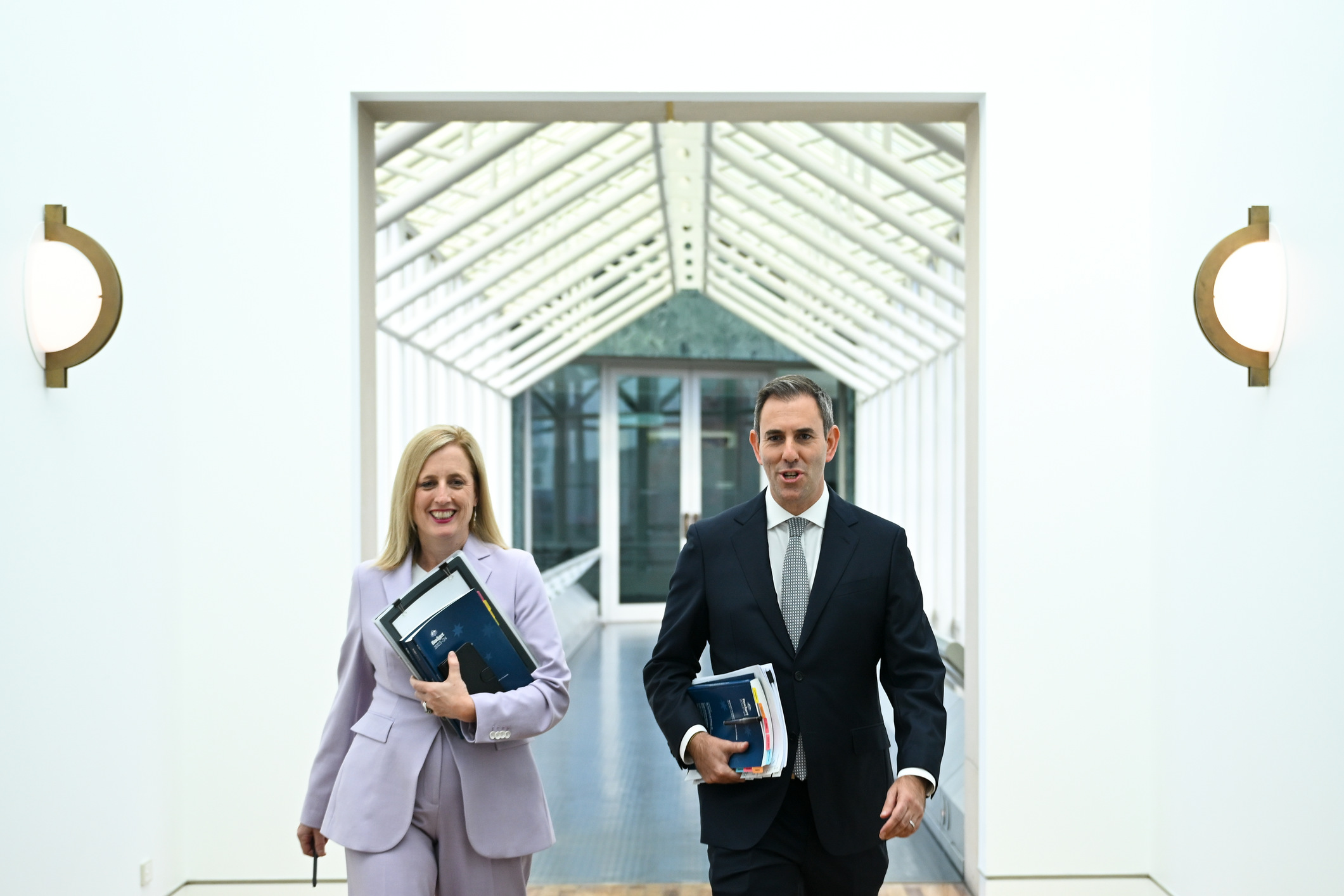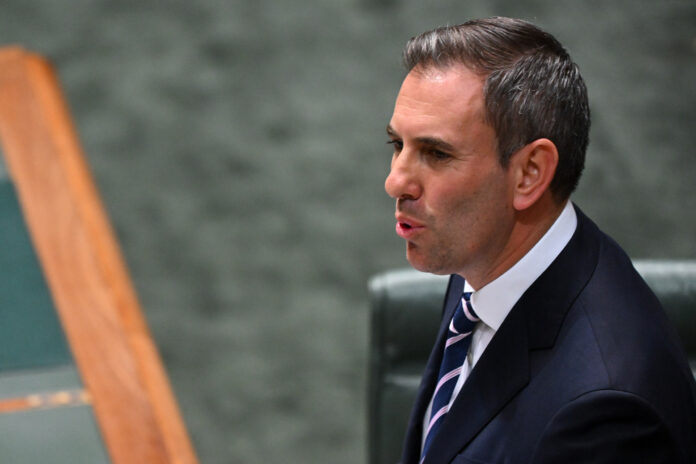Millions of Australians are set to benefit from cost-of-living relief, free GP visits and lower than expected power prices.
Treasurer Jim Chalmers promised the relief measures would not worsen already high inflation, treading a delicate balance while handing down his second budget.
An increase to welfare payments, boost to bulk billing and energy bill relief are some of the key items in the 2023/24 budget, which includes $14.6 billion in targeted cost-of-living measures at a time of global economic uncertainty.
The treasurer trumpeted a surplus for the current financial year of $4.2 billion, but it won’t continue for long, with a $13.9 billion deficit forecast for 2023/24.
Deficits will continue until at least 2026/27, albeit at much lower levels, driven by improvement to the budget bottom line.
Dr Chalmers said cost-of-living measures would reduce inflation by 0.75 per cent in the next financial year.
“In all our decisions, we seek to strike a considered, methodical balance between spending restraint to keep the pressure off inflation, while doing what we can to help people struggling to make ends meet,” he said.
The measures include the expansion to bulk billing, with a $3.5 billion boost to provide free GP consults to more than 11 million patients.
The bulk billing incentive has been tripled for GP appointments for concession card holders and patients aged under 16.
As well, the base rate of JobSeeker and Youth Allowance will rise by $40 a fortnight from September.
“We understand that there will be people who are saying $40 a fortnight is not enough, there will be some who will be saying it is too much,” Dr Chalmers said.
“We think we’ve struck the right balance between what we can afford and taking into consideration the economic pressures in the economy.”
Eligibility for a higher rate of JobSeeker will also be lowered from 60 to 55, following a rise in the number of older Australians on the payment.
About 52,000 Australians aged between 55 and 59 will get an extra $92.10 per fortnight.

Almost $5 billion will be spent over the next five years to support more than 1.1 million people on income support.
Single parents will see a boost, with the threshold for the single parent payment increasing to when the youngest child turns 14, up from the previous limit of eight years old.
The maximum rate of Commonwealth rent assistance will also rise by 15 per cent for 1.1 million households.
With rising power prices being one of the biggest costs to households, energy bill relief has also been a key feature of the federal budget.
The government has set aside $3 billion in relief measures as part of partnerships with states and territories.
Energy bill relief of $500 will be handed out to five million households, while $650 payments will be sent to one million small businesses.
It’s forecast energy relief measures would lead to price increases for electricity being 25 percentage points less, while gas prices rises will be 16 percentage points lower.
ACTU president Michele O’Neil said the relief measures were much needed.
“After a decade of neglect and policies that have driven down wages, getting wages moving is still one of the biggest challenges for the economy,” she said.
Australian Chamber of Commerce and Industry chief executive Andrew McKellar said while a surplus was delivered, economic uncertainty remained.
“With the prospect of returning to a structural deficit of more than $35 billion in two years, we cannot rely on record commodity windfalls, strong migration inflows and an ultra-tight labour market to drive down debt,” he said.
SUBSCRIBE here now for our FREE news feed, direct to your inbox daily.





